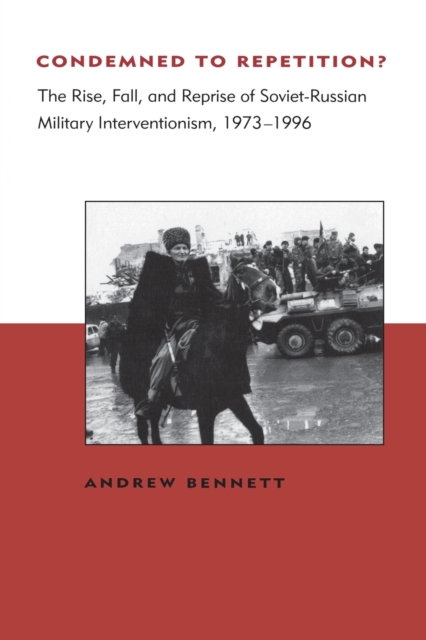
Condemned to Repetition? : The Rise, Fall, and Reprise of Soviet-Russian Military Interventionism, 1973-1996 Paperback / softback
by Andrew Bennett
Part of the Belfer Center Studies in International Security series
Paperback / softback
Description
Why did the Soviet Union use less force to preserve the Soviet empire from 1989 to 1991 than it had used in distant and impoverished Angola in 1975?
This book fills a key gap in international relations theories by examining how actors' preferences and causal conceptions change as they learn from their experiences. Andrew Bennett draws on interviews and declassified Politburo documents as well as numerous public statements to establish the views of Soviet and Russian officials.
He argues that Soviet leaders drew lessons from their apparent successes in Vietnam and elsewhere in the 1970s that made them more interventionist.
Then, as casualties in Afghanistan mounted in the 1980s, Soviet leaders learned different lessons that led them to withdraw from regional conflicts and even to abstain from the use of force as the Soviet empire dissolved.
The loss of this empire led to exaggerated fears of "domino effects" within Russia and a resurgence of interventionist views, culminating in the Russian invasion of Chechnya in 1994.
Throughout this process, Soviet and Russian leaders and policy experts were divided into competing schools of thought as much by the information to which they were exposed as by their apparent material interests.
This helps explain how Gorbachev and other new thinkers were able to prevail over the powerful military-party-industrial complex that had dominated Soviet politics since Stalin's time.
Information
-
Available to Order - This title is available to order, with delivery expected within 2 weeks
- Format:Paperback / softback
- Pages:400 pages
- Publisher:MIT Press Ltd
- Publication Date:13/09/1999
- Category:
- ISBN:9780262522571
Information
-
Available to Order - This title is available to order, with delivery expected within 2 weeks
- Format:Paperback / softback
- Pages:400 pages
- Publisher:MIT Press Ltd
- Publication Date:13/09/1999
- Category:
- ISBN:9780262522571










